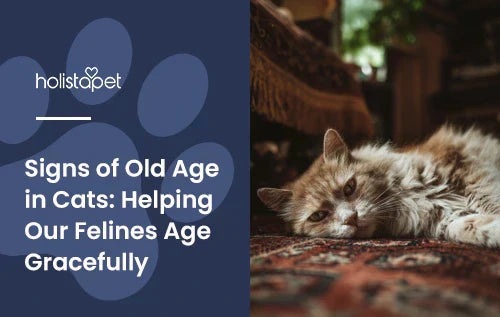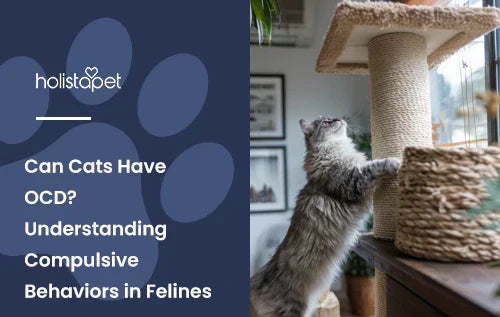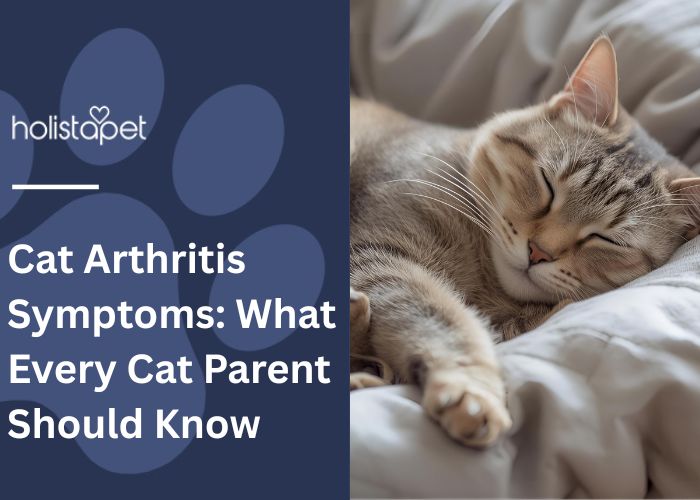Kitties age just like people, but they do it with a bit more style (and fur). Spotting the signs of old age in cats early helps you keep your favorite feline comfortable and happy.
As cats grow older, you might notice subtle shifts: slower steps, longer naps, or fewer leaps onto that favorite windowsill. These small hints whisper that your proud companion is entering their senior years. Growing old might be natural, but growing old with care? That's pure love.
Understanding the Feline Aging Process

Most felines become seniors between 10 and 12 years of age. That equals roughly four human years per cat year. During this stage, their organs, joints, and metabolism start slowing down. Some older cats may lose weight or move less, while others gain weight from lower activity levels.
Spotting changes early helps you catch potential medical conditions like kidney disease or dental problems sooner. Routine wellness exams keep aging kitties healthy and comfortable as they move through their golden years.
Factors That Influence How Cats Age
Every younger cat eventually grows older in their own way. How fast they age depends on a mix of lifestyle, genetics, and daily care. Knowing these influences helps you support your senior pet through every stage.
- Genetics. Some breeds naturally age more slowly than others.
- Diet. Quality food supports an ideal weight and a strong immune system.
- Activity Level. Regular play helps maintain muscle tone and joint mobility.
- Healthcare. Routine veterinary medicine checkups catch issues early.
- Environment. A calm, low-stress home keeps your cat's well-being steady.
Physical Signs of Aging in Cats
As cats age, their bodies start showing visible clues. Most shifts are gradual, building up over months or years.
- Slower Movements and Stiff Joints. Your cat may hesitate before jumping or climbing stairs.
- Decreased Activity and Playfulness. Shorter play sessions or more naps.
- Weight Loss or Weight Gain. Aging affects metabolism and body condition score.
- Changes in Appetite or Eating Habits. Could signal dental diseases or metabolic issues.
- Matted or Dull Fur From Less Grooming. Indicates reduced flexibility or discomfort.
- Cloudy Eyes or Vision Issues. Early signs of aging eyes.
- Hearing Loss or Reduced Responsiveness. Cats may stop reacting to soft sounds.
- More Sleep and Longer Naps. Older cats often seek deeper, longer rest.
Emotional and Behavioral Changes in Senior Cats
Aging affects more than a cat's body; it changes moods and habits, too. These emotional cues help owners understand what their feline companions need most.
- Increased Irritability or Grumpiness. Older cats can become less patient with touch or noise.
- Clinginess and Fear of Being Alone. Some crave constant company or attention.
- Confusion or Disorientation. Cognitive dysfunction may cause aimless wandering or staring.
- Litter Box Accidents or Avoidance. Trouble reaching or locating litter boxes is common.
- Changes in Vocalization or Meowing Patterns. Excessive meowing or silence signals behavioral shifts.
How Aging Affects a Cat's Senses
As cats age, their senses start to dull, changing how they experience the world around them. You might notice your older cat missing cues that were once second nature. These changes happen slowly, so subtle shifts in reaction or behavior matter.
Vision may blur, and cloudy eyes can make it hard to judge distances. Hearing fades, so cats may sleep through sounds that once caught their attention. A reduced sense of smell or taste can lead to appetite changes or fussier eating habits.
Health Issues Common in Senior Cats
Older cats face more health problems as their bodies slow down. Many feline patients manage these conditions well with consistent care and monitoring.
- Joint Swelling and Aches. Often linked to degenerative joint disease that limits movement.
- Kidney and Liver Disease. Common in geriatric cats, leading to changes in thirst or urination.
- Dental Problems. Periodontal disease and sore gums cause eating discomfort.
- Hyperthyroidism and Diabetes. Affect energy, weight loss, or weight gain.
- Cognitive Decline (Feline Dementia). Confusion, restlessness, and sleep habit changes.
How To Care for an Aging Cat
Caring for senior cats means making small adjustments that bring big comfort. Thoughtful tweaks keep your feline companion relaxed, active, and connected to you.
- Keep a Consistent Daily Routine. Predictability reduces stress and confusion.
- Provide Easy Access to Food, Water, and Litter. Shallow food and water bowls and low-entry litter boxes help.
- Offer Soft Bedding and Warm Spots. Gentle support soothes tired joints.
- Adjust Diet for Senior Nutritional Needs. Helps maintain a healthy weight and energy.
- Encourage Gentle Play and Exercise. Keeps muscles strong and spirits bright.
Promoting Comfort and Mobility Naturally
Small daily actions can make your older cat feel more at ease while supporting long-term comfort. Simple habits like soft bedding, easy-to-reach spaces, and low jumping surfaces protect tender joints. Pair these with gentle movement, stretching, or massage to keep your senior cat's body flexible. The goal is simple: comfort, calm, and steady mobility through every nap and cuddle.
Gentle Massage and Low-Impact Exercise
A gentle massage helps ease muscle tension and improve flexibility. Focus on slow, light strokes along the back and shoulders. Most cats love it once they relax.
Low-impact play keeps older cats moving without strain. Try short wand toy sessions or encourage them to climb stairs at their own pace. Regular, gentle activity supports circulation and comfort.
Joint Support Supplements and Omega-3s
Omega-3 fatty acids and other wellness products can support joint flexibility and reduce stiffness over time. They're an easy way to help older cats stay active and enjoy daily life. Many owners add these natural additions to their pet's routine with food or treats. Combined with gentle activity, they help maintain overall well-being through senior years.
Using CBD for Senior Cat Comfort
CBD (cannabidiol) works with your cat's own endocannabinoid system, a natural network that helps balance mood, sleep, and comfort. When your kitty takes CBD, it interacts with receptors in the brain and body that support relaxation, steady movement, and overall well-being. Many owners use CBD to help older cats rest better, stay calm, and move with greater ease. It's a gentle, natural option that fits easily into your pet's routine.
HolistaPet's CBD Collection for Cats

HolistaPet offers trusted CBD options designed specifically for felines of all ages, especially senior cats. Our CBD oils, treats, and chews promote comfort, calm, and steady mobility, helping your companion enjoy every nap and window view.
Why choose HolistaPet? Our products come from American-grown, Farm Bill–compliant hemp and are third-party lab tested for purity and potency. Each formula is broad-spectrum, THC-free, 100% plant-based, and cruelty-free. We're trusted by thousands of proud owners who want the best care for their feline companions. Shop HolistaPet's CBD Collection for Cats here.
Creating a Peaceful Home Environment
Senior cats thrive in calm, predictable spaces. Loud noises, sudden changes, or new pets can upset routines and cause anxious behaviors. Keeping the home steady and familiar helps older cats feel safe and secure.
Set up quiet resting spots away from foot traffic and keep food and water bowls easy to reach. Gentle voices, soft blankets, and consistent affection create a peaceful rhythm. A loving, stable home keeps your favorite feline's senior years cozy and content.
Importance of Regular Vet Checkups
Routine wellness exams are the best way to keep aging cats feeling their best. Vets can track changes in weight, mobility, and organ function, spotting medical conditions early before they become serious. Regular blood work also helps monitor kidney and liver health.
Most senior cats benefit from checkups every six months. These visits ensure early detection, smoother treatments, and a better quality of life. A little prevention helps your kitty enjoy many more naps in the sun.
FAQs About Aging Cats
Every cat grows older at its own pace, and owners often have questions about what's normal. Here are some quick answers that help you care for your senior pet's body with confidence and love.
At what age is a cat considered “old” or “senior”?
Most cats are considered seniors around 10 to 12 years of age, which equals roughly four human years per cat year. Around this time, your cat's energy may taper off, and their playtime might shorten. You may also notice small changes in grooming habits or sleep patterns.
How long do senior cats usually live?
With consistent care, senior cats can live between 15 and 20 years, sometimes longer. Longevity depends on genetics, diet, and regular vet visits. Routine blood work and dental checks help keep your older kitty healthy and alert.
Should I change my cat's diet as they age?
Aging cats often need different nutrition to support joint comfort, digestion, and a healthy weight. Senior formulas provide the right balance of protein and calories for a slower metabolism. Always pair diet changes with plenty of fresh water and regular weight checks. Your vet can help fine-tune portions and recommend the best food for your senior cat's body.
Can CBD really help my older cat feel better?
CBD can help elderly cats relax, rest better, and move more comfortably. It works naturally with the body's endocannabinoid system to promote calm and steady balance. Many cat owners use CBD to help ease agitation, improve sleep patterns, and support daily mobility. Always choose trusted, lab-tested products like HolistaPet's CBD collection to keep your feline friend safe and content.
Final Thoughts: Caring for Older Cats
Watching your feline bestie grow older is bittersweet, but it's also a chance to return the endless love they've given you. With mindful care, soft spaces, and regular vet checkups, your kitty can thrive through every stage of aging. Keeping an eye on changes in appetite, mobility, and behavioral habits helps catch issues early.
For added comfort, trusted brands like HolistaPet offer natural CBD options made for senior cats. These products can support relaxation, mobility, and steady rest. With patience and care, you can make your cat's golden years truly shine.


 CBD Oil for Cats - Fast Acting
CBD Oil for Cats - Fast Acting
 CBD Cat Treats - Easy Dose
CBD Cat Treats - Easy Dose
 CBD Calming Chews for Cats - Highly Rated
CBD Calming Chews for Cats - Highly Rated
 CBG Oil for Dogs and Cats - Loved by Thousands
CBG Oil for Dogs and Cats - Loved by Thousands





Leave a comment
All comments are moderated before being published.
This site is protected by hCaptcha and the hCaptcha Privacy Policy and Terms of Service apply.